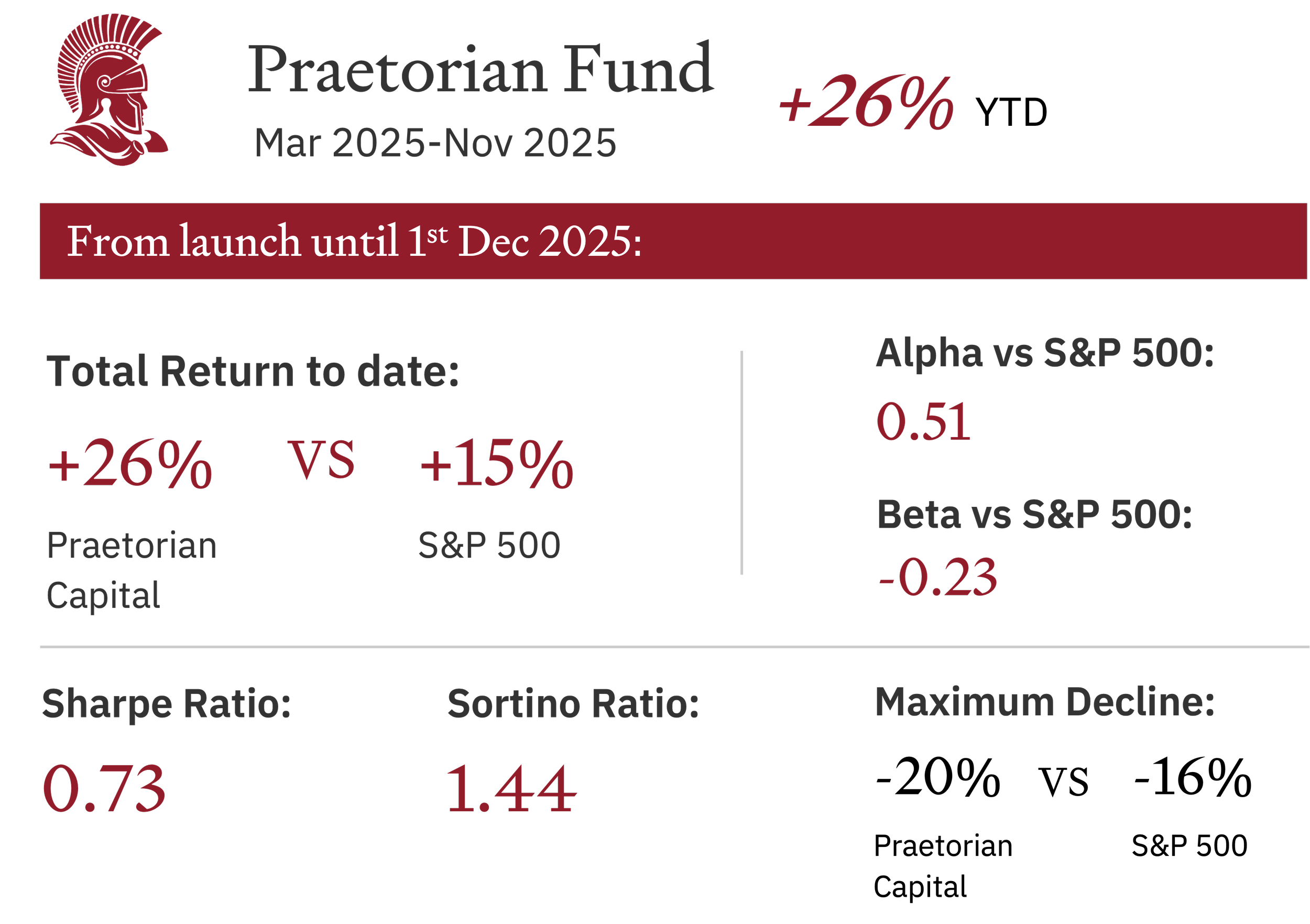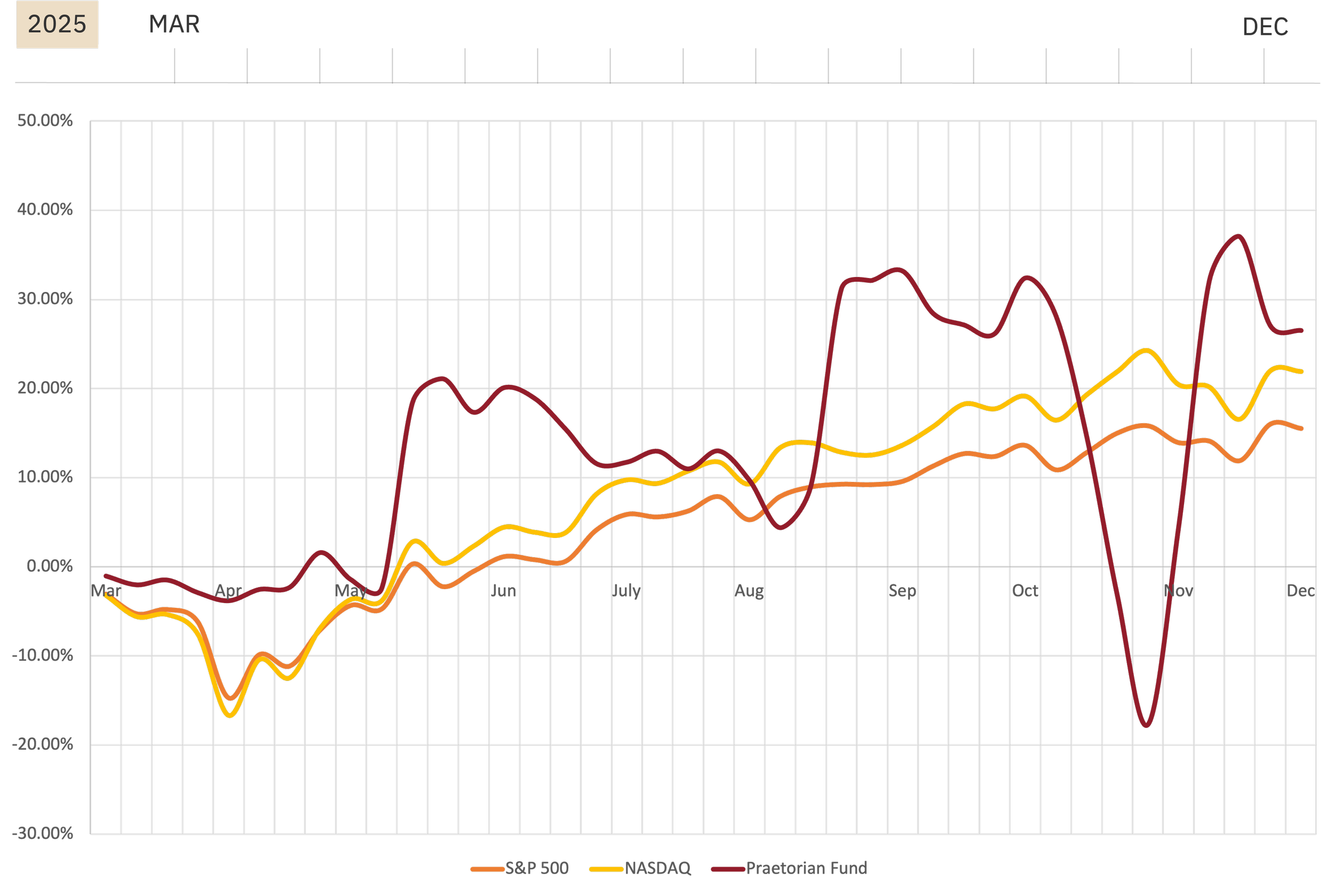
Investment Strategy
Praetorian Capital employs a dual-book strategy that combines event-driven value investing with short-term trading for agility, risk hedging, and alpha generation in volatile markets.
Passive index funds like the S&P 500 offer broad exposure, but lack adaptability and active risk management. Praetorian’s approach is designed to protect and perform across market cycles.

Praetorian Capital’s performance vs. the market
Praetorian Capital has delivered a +26% total return since the fund launched in March 2025.
Performance since Praetorian Fund went live
Investment Strategies
Praetorian Capital employ a dual-book strategy. Value-driven investing forms the foundation. Complemented by short-term tactical agility to navigate volatile markets.
Value Book
We maintain high-conviction positions where a clear thesis and well-identified catalysts drive value realisation. We focus on mispriced companies – both undervalued and overvalued – grounded in deep fundamental analysis and near-term events that drive re-pricing.
Long Term
Build positions based on deep value with high conviction.
Undervalued (buy mispriced & high potential)
Overvalued (sell overhyped & unsustainable)
Trading Book
Selective short-term trading is used to protect the value book during volatility. It serves a dual purpose: mitigating downside risk through active hedging and generating alpha through event-driven trades that capitalise on macro shocks, earnings surprises, geopolitical catalysts, and volatility spikes.
Short Term
Capture quick alpha from market dislocations or catalysts.
Price level driven, event driven.
Macro shocks, earnings reports, geopolitical catalysts, and volatility .
Dynamic Execution
A flexible framework across timeframes, asset classes, and volatility. Combining human oversight with algorithmic precision to optimise trade timing, minimise slippage, and handle liquidity stress. Real-time data informs adjustments to position size, entry/exit points, and risk exposure.
Quantitative
Use data science and algorithmic models to uncover patterns systematically.
Price level driven, momentum trading. Market inefficiencies.

Industry Benchmark
Exposure Management

Risk Management Process
24/7 Automated Monitoring
Advanced systems continuously track key portfolio metrics, including volatility, position sizes, correlations, and potential losses. Real-time monitoring ensures immediate adjustments to mitigate outsised risks.
1. Trade Signal Generation
Signals derived from sentiment analysis, market events, liquidity, and seasonality patterns.
2. Risk Assessment
Factors such as portfolio correlation, volatility expectations, and event risks are evaluated.
3. Entry & Exit Level Calculations
Guardrails are established to maintain optimal risk/reward ratios and limit unnecessary exposure.
4. Execution & Capital Allocation
Position sizes dynamically adjusted based on strategy grading and market potential.













